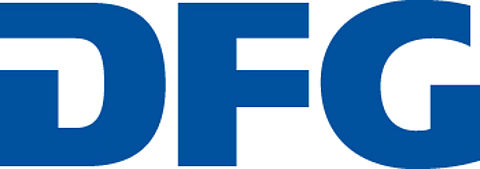DFG Research Unit 5234/2: Does competition accelerate or hinder scientific progress?

What role does competition play in outstanding scientific discoveries? Innovation researcher Professor Carolin Häussler from the University of Passau is leading a sub-project in the DFG Research Group "Multiple Competition in the Higher Education System". The group is coordinated by the International Centre for Higher Education Research (INCHER) at the University of Kassel.
Competition stimulates business and is also a driving force in science. Studies show, for example, that high-quality publications increase the chances of scientists being offered a tenured position by up to 15 per cent. On the other hand, studies also show that competition hinders the exchange of knowledge. In particular, the battle for funding, reputation and the best minds has intensified in recent years. How is this affecting progress in science? A team led by innovation researcher Professor Carolin Häussler from the University of Passau is investigating this question. Her project is part of the DFG Research Unit 5234/2 "Multiple competition in the higher education system: internationalisation and international comparison". The group is coordinated by the International Centre for Higher Education Research (INCHER) at the University of Kassel.
In the project, the Passau research team is focusing on the scientific production function. The focus is on the question of how the various forms of competition influence the behaviour of scientists and thus progress in science. "We are looking at the level of individual researchers to see how competition affects the selection of research projects, the type of research and the interactions of researchers within and across organisational boundaries," explains Professor Häussler. As scientific competition and incentive systems differ between countries, the project will also take an international perspective.
Based on a large-scale survey of German and US academics, the research team is analysing various dimensions of perceived competition, such as for reputation and resources, and relating these to the respective success. Professor Häussler's team also analyses detailed information about characteristics and interactions in science. In order to gain a better understanding of the mechanisms behind the patterns identified, the team is also conducting in-depth qualitative interviews. The team is cooperating with Maria P. Roche, an alumna of the University of Passau, who is now conducting research at Harvard Business School.
About the DFG Research Unit "Multiple competition in the higher education system"
Professor Häussler's sub-project is entitled: “How multiple forms of competition shape researchers’ and scientific production within and across fields". It is one of a total of nine sub-projects of the Research Unit "Multiple competition in the higher education system", which is funded by the German Research Foundation (DFG). The group, led by the Kassel sociologist and higher education researcher Professor Georg Krücken, aims to use sociological and economic approaches to contribute to a comprehensive understanding of multiple competition in the higher education system. In the second funding phase, the group will focus more on multiple competition in the context of internationalisation in the German higher education system and in international comparison. The team of the interdisciplinary research group consists of twelve academics from the fields of sociology, economics and business administration. In addition to the University of Passau, the Humboldt University of Berlin, the University of Bremen, the Leibniz University of Hanover, the Technical University of Ilmenau, the Friedrich Schiller University of Jena and the University of Hamburg are also involved. The second phase of the DFG research group will run for three years.
About Professor Häussler
Professor Carolin Häussler holds the Chair of Organisation, Technology Management and Entrepreneurship at the University of Passau. She is a DFG Liaison Officer at the University of Passau and one of the principal investigators of the DFG Research Training Group 2720: "Digital Platform Ecosystems". She is also a member of the Commission of Experts for Research and Innovation (EFI), which advises the German government in its innovation policy.
The DFG Research Unit is seeking to fill the following positions:
| Principal Investigator(s) at the University | Prof. Dr. Carolin Häussler (Lehrstuhl für Betriebswirtschaftslehre mit Schwerpunkt Organisation, Technologiemanagement und Entrepreneurship) |
|---|---|
| Website | https://www.uni-kassel.de/forschung/en/incher/research/multiple-competition-in-higher-education/dfg-research-group-multiple-competition-in-higher-education |
| Source of funding |  DFG - Deutsche Forschungsgemeinschaft > DFG - Forschungsgruppe |


